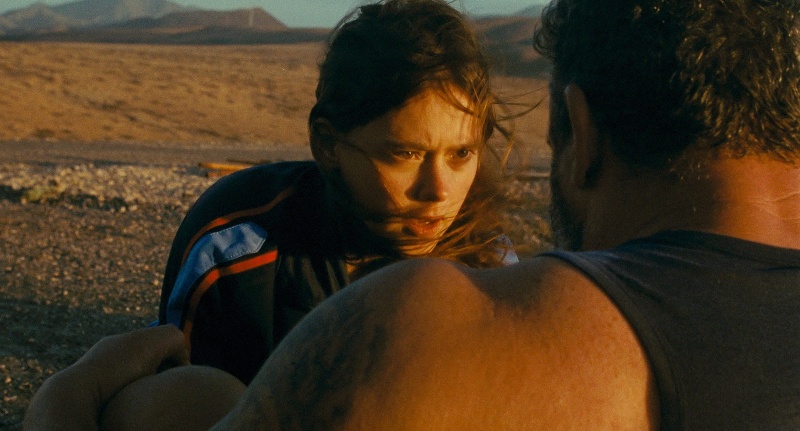Dance of the Living
La lucha
VERDICT: A working class father and daughter belong to a close-knit group of traditional wrestlers in an unexpectedly flamboyant, emotionally pitch-perfect story set on the Canary Islands, ‘Dance of the Living’.
In a stunningly original second film, Spanish director, producer and sometimes director of photography José Alayon explores the frayed bond between a father and daughter as their passion for amateur wrestling turns into a trap laden with physical and emotional pain in Dance of the Living (La lucha).
The Spanish-Colombian coprod distinguishes itself on a number of levels, quickly sucking the viewer into the personal lives of Miguel and the late-teen Mariana a year after a death in the family. The stark barrenness of the setting (Fuerteventura in the Canary Islands) is as emphatic an element of the film as the many scenes of traditional wrestling, both of them underscoring the feeling of authenticity that permeates the characters’ relationships and dialogue.
For those who know wrestling only as faked television entertainment, where preening men in tacky costumes put on a show, this portrayal of traditional wrestling (“lucha”) as an ethical activity comes as a surprise and a revelation. The sport dominates the film, from the first close-ups of massive bodies and brawny muscles pushing and straining to upset the opponent, to generous helpings of historical black-and-white archive photos that become a veritable avalanche over the end credits. Opening titles offer a sketchy history of wrestling in the Canaries, which has existed even before the Castilian conquest in the 15th century. The invaders referred to la lucha as a barbaric ritual, but it is depicted here as just the opposite: a low-movement, low-excitement sport based on trust and integrity, where any sign of aggression like biting an opponent is enough to get a wrestler suspended from the club for a year.
If the focus on close-ups of enormous thighs and bulging muscles can seem overdone at times, it offers an unusual way into the main characters through their physicality, which is never sexualized as one might expect. Instead it is a source of pain for Miguel (Tomasin Padron), a 47-year-old man who weighs 330 pounds and whose hurt knee is getting worse every time he competes on the simple sandy ring with his team of local wrestlers. His daughter Mariane (Yazmina Estupinan) is too young to drive a car, but not too young or light-weight to wrestle on the women’s team. She is following in the footsteps not just of Miguel, but of her mother Pilar, a famous wrestler who died a year earlier. The tragedy has led to her father withdrawing into his own melancholy world of depression, while Mariane tries to fill the emotional void in her life by throwing herself at one of her Dad’s friends and obsessing about winning (in this context, not such a good thing.) In a quick scene or two, all the characters are seen working at a clipped rhythm in what seems to be a mechanized laundry factory. But never does the screenplay by Marina Alberti and Samuel M. Delgado try to define them by their class: each is so much more than that.
The film is also much more than a simple sports film, though it has a documentary aspect that is fascinating and bound to interest sports fans. Marcel Herce’s warm camerawork brings out the awe-inspiring, dune-like rocky hills that give the island its stark reality, connecting the people who live in plain blocklike structures. All is brushed gently by the modern music based on ancient drumbeats of Camilo Sanabria and Adriana Galan’s mysterious score.
Director, producer: José Alayon
Screenwriters: Marina Alberti, Samuel M. Delgado
Cast: Yazmina Estupiñan, Tomasín Padrón, Inés Cano, Sara Cano, Aridany Pérez
Cinematography: Mauro Herce
Editing: Emma Tusell
Art direction: Silvia Navarro
Music: Camilo Sanabria, Adriana Galan
Sound: Carlos E. Garcia
Production companies: El Viaje Films (Spain), Blond Indian (Colombia)
World sales: Bendita Film Sales
Venue: San Sebastian Film Festival (New Directors)
In Spanish
92 minutes

